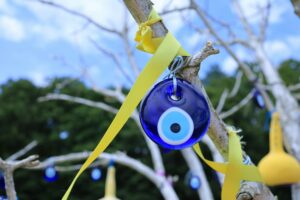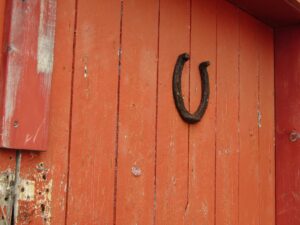Read time 6 minutes
First off, thank you, Universe. Every day, I wake up feeling blessed. Recovery isn’t linear, nor is health, but both are worth fighting for. If you’re reading this blog, welcome to my world of reflection and resilience.

In India, superstition and chronic illness often walk hand in hand. For many patients, especially those with rare or invisible conditions, the first explanations they hear are not medical but mystical: “It’s the evil eye,” “It’s past karma,” or “A ritual will fix it.”
These beliefs can delay diagnosis, create stigma, and sometimes isolate families. Yet, they also reveal how communities try to make sense of suffering when science feels distant or incomplete.
For someone living with chronic and rare disease, superstition can feel like both a burden and a balm. It restricted access to care on one hand, while offering small rituals of comfort and control on the other.
To understand illness in India, you can’t ignore superstition; it is part of the story.
As a kid, I laughed.
But over time, what I discovered was fascinating. Many of these so-called superstitions weren’t just blind beliefs. There were clever ways our elders protected us, kept us healthy, and made life more meaningful.
Years later, I have started looking at them differently.
Superstitions Reframed as Life Hacks

| Superstition / Rule | What My Mother Said | What I Found Out | My Twist |
| Don’t Cut a Peepal Tree | “Never cut a peepal tree, it will bring misfortune.” | Peepal trees release oxygen day & night, support biodiversity, live for centuries, and protect the environment. | Reminded me that what sounds like superstition is often coded wisdom: don’t destroy what sustains you. |
| Don’t Spill Rice | “Don’t waste rice, it’s unlucky.” | Rice symbolises prosperity and food security; wasting it was taboo. | During IBS flare-ups, rice was my safe food. I began treating every grain with gratitude. |
| The Evil Eye (Nazar) | “Too much praise attracts nazar. Put a black dot or hang lemons and chillies.” | Lemon‑chilli combo repels insects; the belief also kept egos in check. | Carrying a blue bead in hospitals felt like my own protective charm. |
| Don’t Cut Nails at Night | “Never cut your nails after dark, it brings bad luck.” | Before electricity, poor lighting made night nail‑cutting unsafe. | I follow it again, not out of fear, but as a rhythm: day for chores, night for rest. |
| Crow Cawing Means Guests | “If a crow caws near the house, expect visitors.” | Crows are social; their calls often signal movement or food nearby. | On lonely days, I treated crow calls as signs of connection, even if no guest came. |
| Neem Leaves at the Door | “Hang neem leaves at the entrance to keep evil away.” | Neem is antibacterial and insect-repelling. | During eczema flares, I kept neem leaves under my pillow as my personal superstition. |
| Don’t Drink Milk During an Eclipse | “Never drink milk during an eclipse, it’s harmful.” | Without refrigeration, milk spoiled during long rituals. | I don’t follow it strictly, but I like how even the cosmos shaped food habits. |
| Don’t Pass Salt Hand‑to‑Hand | “Never pass salt directly; it causes fights.” | Salt was precious; spills were wasteful and unlucky. | Placing salt on the table is a gentle gesture of respect for customs and for the people gathered around it. |
| Turmeric on Wounds | “Apply haldi to cuts; it heals faster.” | Turmeric is antibacterial and anti-inflammatory, a natural antiseptic. | I still reach for haldi before a Band-Aid; it feels like my grandma’s first‑aid kit. |
| Curd & Sugar Before Exams/Journeys | “Eat curd with sugar; it brings good luck.” | Curd cools the stomach; sugar provides quick energy; a natural stress buster. | Before stepping out, I still sneak in a spoonful; it’s my edible pep talk. |
| Tulsi Leaves Shouldn’t Be Chewed | “Never chew tulsi leaves directly; it angers the goddess.” | Tulsi contains mercury; chewing can harm tooth enamel. | I switched to Tulsi tea, same benefits with no dental drama. |
| Don’t Eat Honey Heated or Cooked | “Heated honey is toxic.” | Heating alters honey’s structure, making it harder to digest. | I prefer raw honey. Ayurveda roots with smoothie vibes. |
| Avoid Curd at Night | “Don’t eat curd at night, it causes colds.” | Curd can increase mucus, worsening congestion. | Daytime only. My sinuses send their regards. |
| Drink Water from a Copper Vessel | “Copper water keeps you healthy.” | Copper has antimicrobial properties; it purifies water naturally. | My copper bottle feels like carrying a piece of Ayurvedic tip. |
| Fasting on Certain Days | “Fast to please the gods.” | Periodic fasting rests the digestive system and detoxifies the body. | I reframed it as a reset button. It’s both spiritual and metabolic. |
| Don’t Go Out During an Eclipse | “Stay indoors during an eclipse; it’s unsafe.” | Looking at eclipses can harm eyesight; food left out could spoil. | I don’t hide indoors, but I do enjoy the pause; it feels like the universe’s reset. |
Why I Still Believe in Them (In My Own Way)

Superstitions don’t cure diseases. But they do something else:
- They remind us that life is bigger than logic alone.
- Life is more fun when it’s a little mysterious.
- They give comfort when answers are missing.
- They create a sense of control in uncertainty.
- They make boring routines feel like rituals.
- They carry traditions across generations.
- They turn fear into a story we can hold onto.
For me, they became more than cultural quirks. They became anchors during my health journey. Odd numbers, blue beads, neem leaves, crow calls, they gave me small sparks of joy when life felt overwhelming.
The Whisper: Maybe there’s More to this World than We See

When I was navigating pain, fatigue, and endless medical jargon, this whisper was priceless.
Here’s the truth: life is more fun when it’s a little mysterious. If everything was predictable, we’d lose the thrill. Superstitions keep that thrill alive.
Create Your Own Superstitions

You don’t need to borrow mine. You can invent your own positive one. The point isn’t whether it’s real. The point is, it makes life more playful:
- Wear a “lucky” color on Mondays.
- Decide that spotting a butterfly means good news is coming.
- Play your favorite song before a big meeting.
- Keep a small object in your pocket as a secret charm.
Looking Back

When Isaacs’ Syndrome made my muscles twitch, odd numbers gave me steadiness. When Lyme disease drained me, a blue bead gave me comfort. When Glaucoma blurred my vision, a candle flame gave me clarity. When kidney disease weighed me down, birds gave me lightness. When eczema flared, neem leaves gave me calm. When IBS left me fragile, rice gave me gratitude.
Each superstition became a little doorway into hope.
Final Thought

At first, my mother’s superstitions felt like strict rules. Over time, I realized they carried hidden meanings, lessons of care, shields of protection, and sometimes, science quietly wrapped in tradition.
And in my toughest moments, they gave me something priceless: a sense of mystery, comfort, and connection to generations before me.
So, the next time someone tells you not to sit under a peepal tree at night, not to pass salt hand-to-hand, or warns you about the evil eye, smile.
Behind the superstition, there’s often a story of love. And sometimes, believing in a little magic is exactly what makes life more fun.
DISCLAIMER
The views expressed in this article are the author’s own and do not represent any medical advice.


